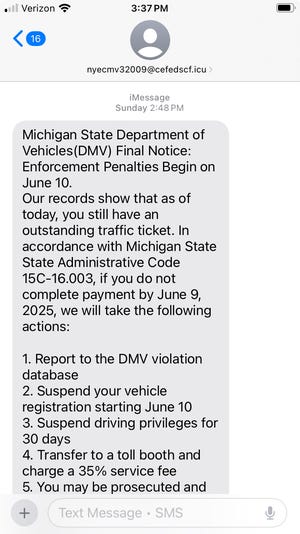What to Do If You’ve Fallen Victim to a Scam
If you’ve responded to or paid a scammer sending fake DMV or toll road texts, here are the immediate steps to take to mitigate the damage. First, contact your bank and credit card issuer immediately using the number on the back of your card, not any number provided in the suspicious text.

Immediate Actions
- Call your card issuer to report the incident and request a new card.
- Change your passwords, especially for financial accounts and email.
- Be cautious if you’ve clicked on any links – don’t interact with the website if you suspect it’s fraudulent.
- Monitor your bank and credit card statements for unusual activity.
- Consider placing a credit freeze to prevent new accounts being opened in your name.
Understanding the Scam
These scams often appear as texts claiming to be from the DMV or toll authorities, threatening enforcement action. Legitimate toll agencies send bills by mail with photos of your vehicle.
Preventing Further Fraud
- Report the scam text to your messaging app or forward to 7726.
- File a complaint with the FCC at consumercomplaints.fcc.gov or call 888-225-5322.
- Report fraud to the FTC at ReportFraud.ftc.gov.
- Check your credit reports regularly for suspicious activity.
- Consider filing a police report if you’ve lost money.
Protecting Yourself in the Future
- Never click on links in unexpected texts.
- Don’t respond to suspicious messages.
- Verify information through official channels.
- Keep your credit frozen when not actively applying for credit.
- Be aware that scammers often use old victim lists for new scams.
By taking these steps, you can minimize the damage from these increasingly common scams and protect yourself from further fraud.


